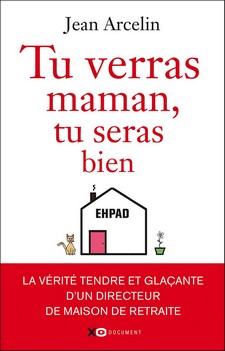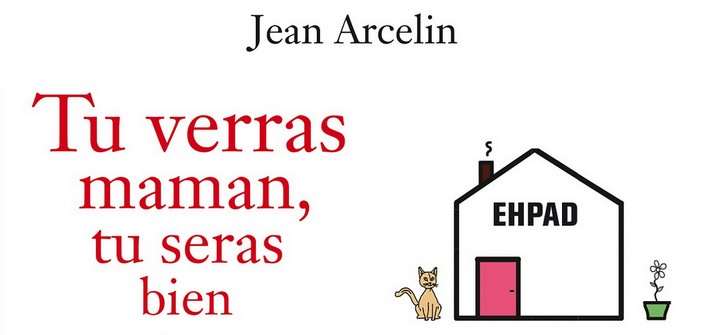The testimony of a director of an EHPAD – Establishment for Dependent Elderly People – who delivers an uncompromising account, touching yet sometimes brutal, about the lives of our elders.
With 1.4 million French people in a situation of dependency in 2018, it is a topic fully in the spotlight.
As Jean Arcelin was approaching the highest positions in the luxury car sales industry, he decided to question everything and reroute his career. After the death of his grandmother, to whom he was particularly attached, he understood: he wanted to commit to bringing happiness and serenity to those who spend their final days in specialized establishments.
Thus begins for him a new professional path, one he hopes is humane, which will prove to be touching but also truly frightening.

The recruiters of large private groups that share the dependent elderly sector do not understand his choice:
– And the salary?
– The HR director gave me your range.
– But how much are you going to lose?
– It doesn’t matter, it’s my choice.
– It doesn’t matter? repeats the man, perplexed. But we have an incentive compensation system for directors. The more profitable your EHPAD is, the more you earn. Do you understand? Money should be a driving force!
From this snippet of conversation, you get the mood. For these groups, there is only one goal: profitability. And of course, the occupancy rate! The OR must always be in the green; otherwise, the directors quickly get reprimanded…
Through his experience, which begins quite quietly at Les Bougainvilliers in Bandol, one better understands the operation of these EHPADs and the absurdity of some directives for ever-greater profitability, such as the daily meal cost. For the Cannes EHPAD, where Jean Arcelin will be sent afterwards, the daily meal cost is €4.35 per day:
Four euros and thirty-five cents… For a breakfast, a lunch, a snack, a dinner, and perhaps a bedtime snack… That’s just over one euro per meal. While residents pay a rent of €3,000 per month.
Faced with this derisory amount, Jean Arcelin will strive to find all possible solutions for the well-being of these residents. And it can be said that this is not an easy task.
Thanks to the author’s account, one can see that it is possible to have a good EHPAD director, a committed person, but one also realizes that as long as EHPAD management is conducted like a classic business, things won’t work properly. Full of courage, Jean Arcelin has yet grown weary of this lack of resources and the hypocrisy of leaders – like that of the national head who says hoki is exquisite.
This book is full of colorful characters, whether they are residents or employees, employees who are underappreciated while often working in really difficult conditions and are held responsible for the lack of cleanliness of some residents while being understaffed and having twice the number of residents to care for…
It reveals tenderness, love, laughter, despite incontinence and senility. But it also uncovers revolt and sadness because of the management style of these EHPADs.
Through this testimony, which should be read by as many people as possible and first and foremost by government members, one understands how society rejects what is aging, what is no longer valid, what is no longer as beautiful. This testimony can help awaken our consciences, change our attitudes and perceptions, and most importantly, propose simple actions to improve things. Jean Arcelin also provides tips for choosing a good EHPAD for a loved one.
A story that cannot be forgotten because we all have relatives who live or will live in EHPADs, and if we do not have dependent family members, it could simply be us someday.


